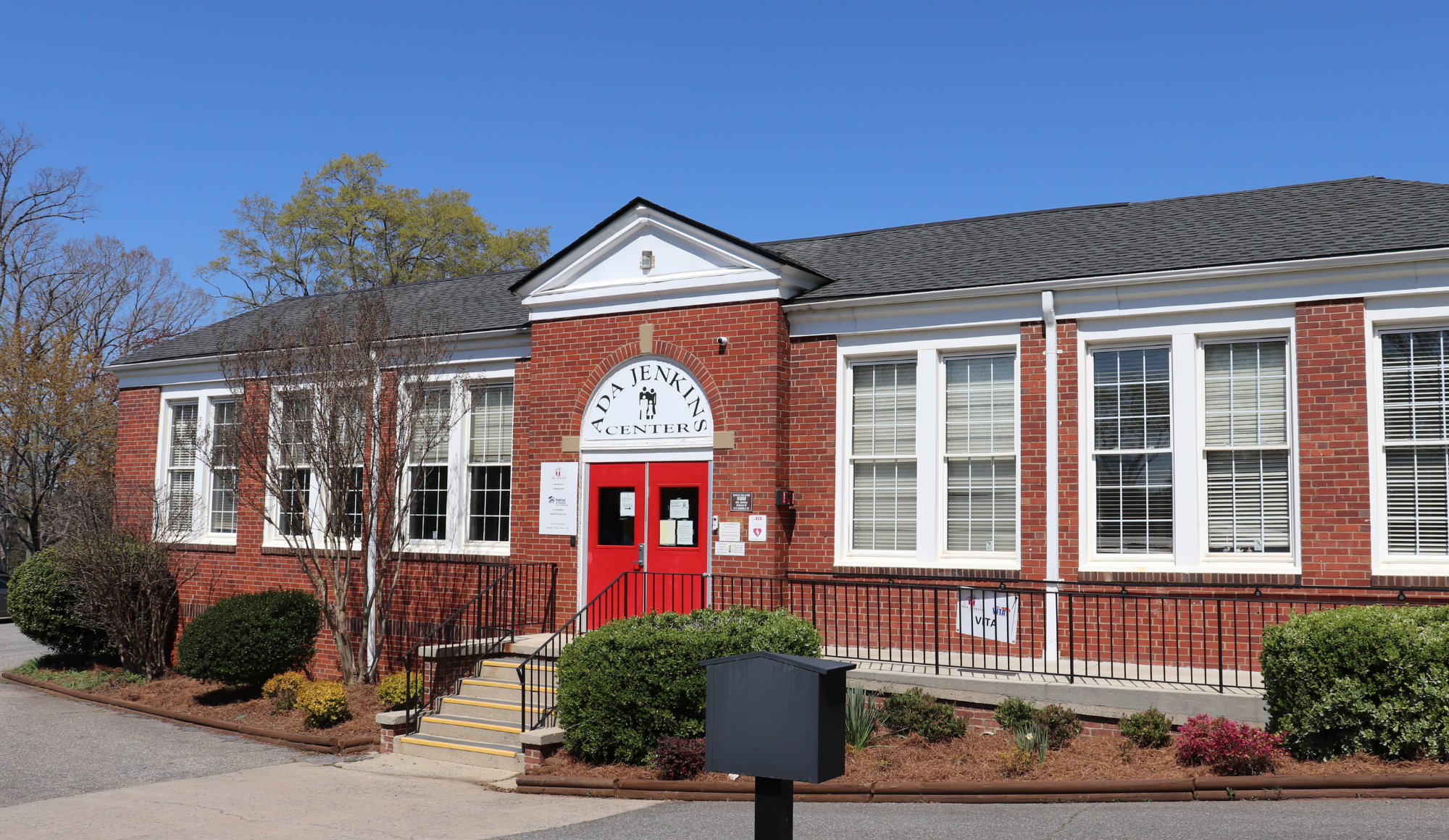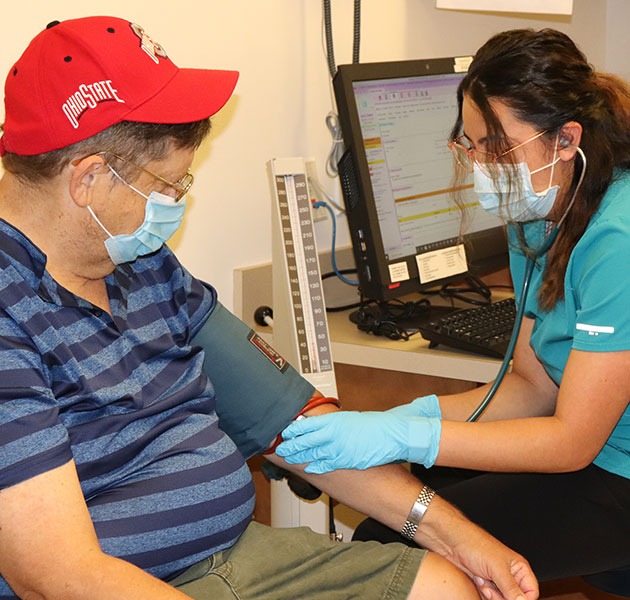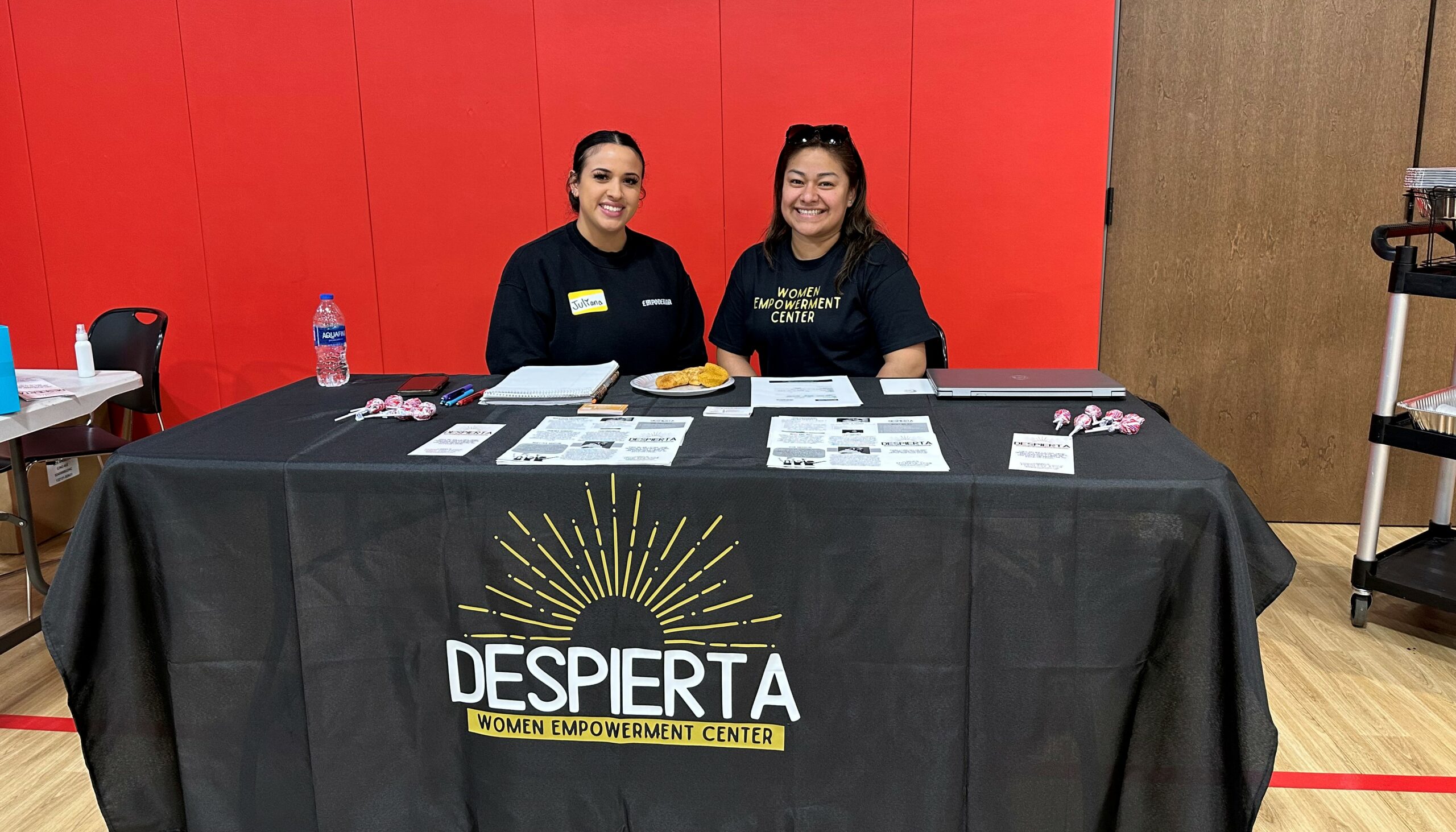
Community Leadership: Ada Jenkins Center
Community Leadership is a series of posts that highlight Community Quarterbacks from each United Neighborhoods geography. A Community Quarterback is a lead partner agency embedded in their community and dedicated to engaging residents, building local leadership and coordinating services among the funded nonprofit partners.
The Ada Jenkins Center has been serving North Mecklenburg in the Cornelius, Davidson and Huntersville communities for more than 25 years now, helping create lasting solutions for economic mobility for residents, now partnering with United Way as its community quarterback.
“I would say to anyone that lives here or gets the opportunity to work in this area, you can’t help but fall in love with it. The people are incredible. I’m really lucky to get to work at a place that helps make the community as strong as it can be, with really great people,” Director of Impact and Engagement Diane Means said.
“When I first took my job at the Ada Jenkins Center, I got to work with a lady named Mary Louis Archie, and Miss Mary was a student of Mrs. Ada Jenkins, for whom our building is named. Miss Mary would tell me stories about her time attending school here, when this was a school, and of Mrs. Jenkins and all of her teachers. And those stories – they catch your heart,” Means said.
Means has been a part of the organization for 24 years, almost from its start, beginning as the LEARN Works Program Director following a career in education.
LEARN Works is just one of The Ada Jenkins Center’s variety of programs and services available to the community to improve economic mobility. For around 20 years, LEARN Works has been the only free afterschool program in North Mecklenburg, serving K-8 students that need academic enrichment.
One major aspect of The Ada Jenkins Center’s mission is their economic mobility work, which encompasses case management, financial assistance and street outreach for those experiencing homelessness. The team at the Ada Jenkins Center works together in a wraparound strategy that involves: community-based case management to provide clearer understanding of families’ home situations and removes potential client barriers such as travel and childcare; administering intake, referrals, and assessments/tools to confirm program eligibility; assisting clients to determine their individual goals, and strategies to reach them (whether housing, education/employment, financial management, or a combination); and documenting, analyzing and sharing data regarding client success.
They also have a food pantry on site, which allows referred clients to shop for their own groceries based on a nutritionally balanced shopping list provided by Nourish Up.
Lastly, the Ada Jenkins Center is a Volunteer Income Tax Assistance (VITA) site, offering free tax help to people who need assistance preparing their own tax returns, including low-to-moderate income families, individuals with disabilities and limited English-speaking taxpayers in the area.
The Ada Jenkins Center is the community quarterback for North Mecklenburg, one of the more recent communities funded through United Way of Greater Charlotte’s United Neighborhoods initiative for place-based work. Through United Neighborhoods, United Way works alongside the community quarterback to convene and provide funding to nonprofits whose services address needs identified by residents.
“In the past two years that we’ve been a community quarterback, we have worked heavily with five neighborhoods: Huntington Green, Pottstown, Davidson West – which is our historic neighborhood that surrounds the center – Smithville and East Catawba,” Means said.
After meeting with community leaders and listening to residents, the Ada Jenkins Center decided a major focus needed to be on ensuring gentrification does not happen in their historically African American neighborhoods.
With United Way’s support, the Ada Jenkins Center has been able to bring in nonprofit partners to assist with critical home repairs to stave off gentrification, help their neighbors avoid being displaced so they can age in place and maintain home ownership for generations to come.
Other focus areas they are working to improve include workforce development, food insecurity, transportation access, childcare access, mental health and wellness care, and access to affordable legal services.
Looking ahead, there are a handful of things Means is excited about for the Ada Jenkins Center; the cafeteria is being renovated into a space dedicated to healthy living programming and the educational programming is expanding to include younger children, but Means is mostly concerned with the Ada Jenkins Center continuing to work with community partners and building their capacity to fill other gaps in the resources available to the community.
“The Ada Jenkins Center has, in my understanding and experience, been really lucky across the two decades I’ve worked here to receive United Way funding,” Means said.
“What I love, deeply respect and admire United Way for in the past few years, since they changed their funding model, is that they put the residents in charge.”
Learn more about the work United Way is doing through United Neighborhoods today.




